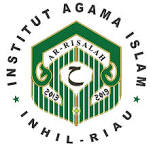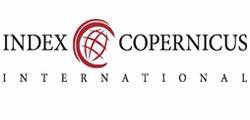Kurikulum dan Metode Pengajaran dalam Perspektif Filsafat Pendidikan Islam
DOI:
https://doi.org/10.61104/alz.v3i5.2436Keywords:
Pendidikan Islam, Kurikulum, Metode Pengajaran, Filsafat PendidikanAbstract
Perkembangan pendidikan Islam di era modern menghadapi tantangan integrasi nilai-nilai wahyu dengan ilmu pengetahuan kontemporer dalam membentuk manusia yang berilmu dan berakhlak. Penelitian ini bertujuan untuk menganalisis dasar filosofis yang melandasi pengembangan kurikulum dan metode pengajaran dalam perspektif filsafat pendidikan Islam. Penelitian ini menggunakan pendekatan kualitatif berbasis studi kepustakaan dengan menelaah karya-karya klasik seperti Ihya’ Ulumuddin karya Al-Ghazali, Kitab al-Shifa karya Ibnu Sina, dan Ara Ahl al-Madinah al-Fadilah karya Al-Farabi, serta teori-teori pendidikan Islam kontemporer. Hasil kajian menunjukkan bahwa filsafat pendidikan Islam menempatkan kurikulum sebagai sarana penyucian jiwa (tazkiyah al-nafs) dan pembentukan insan kamil yang seimbang secara intelektual, moral, dan spiritual. Metode pengajaran dalam perspektif ini tidak hanya bersifat instruksional tetapi juga transformatif, dengan menekankan peran guru sebagai teladan moral dan pembimbing ruhani. Temuan penelitian ini menegaskan bahwa penguatan fondasi filosofis pendidikan Islam dapat menjadi strategi efektif dalam menghadapi tantangan globalisasi, sekularisasi, dan disrupsi teknologi
References
Abdullah, M. A. (2020). Islamic Education and the Challenge of Globalization. Yogyakarta: UIN Sunan Kalijaga Press.
Ainiyah, Q. (2017). Character building through Islamic education values in curriculum implementation. Journal of Education and Practice, 8(23), 222–230.
Al-Attas, S. M. N. (1991). The Concept of Education in Islam: A Framework for an Islamic Philosophy of Education. Kuala Lumpur: ISTAC.
Al-Attas, S. M. N. (2018). Islam and Secularism: Revisited. Kuala Lumpur: ISTAC.
Al-Farabi. (2001). Ara Ahl al-Madinah al-Fadilah. Beirut: Dar al-Masyriq.
Al-Ghazali. (2005). Ihya’ Ulumuddin. Beirut: Dar al-Kutub al-‘Ilmiyyah.
Al-Zarnuji. (2010). Ta’lim al-Muta’allim: Tariq al-Ta’allum. Cairo: Dar al-Fikr.
Altinawi, M. (2020). Islamic educational philosophy and the modern world. International Journal of Islamic Thought, 18(1), 12–21. https://doi.org/10.24035/ijit.18.2020.002
Baharun, H. (2016). Manajemen kinerja dalam meningkatkan competitive advantage pada lembaga pendidikan Islam. At-Tajdid: Jurnal Ilmu Tarbiyah, 5(2), 243–262.
Elmi, M., & Khairuddin, H. (2022). Islamic pedagogy in contemporary curriculum: A philosophical analysis. Journal of Islamic Education Research, 11(2), 98–113. https://doi.org/10.1080/21567210.2022.1834512
El-Sayed, R., Ahmed, H., & Hussein, M. (2023). Digital transformation and Islamic pedagogy: Opportunities and ethical challenges. Educational Philosophy and Theory, 55(9), 1342–1357. https://doi.org/10.1080/00131857.2023.2189456
Fauzi, A., & Madkur, A. (2020). Reconstructing Islamic curriculum in the era of disruption. Tarbiyah: Journal of Education and Teaching, 25(1), 45–58. https://doi.org/10.30829/tarbiyah.v25i1.678
Gadamer, H. G. (2004). Truth and Method (2nd ed.). London: Continuum.
Halstead, J. M. (2019). An Islamic concept of education. Journal of Moral Education, 48(2), 154–168. https://doi.org/10.1080/03057240.2019.1577201
Hashim, R. (2017). Educational Dualism in Malaysia: Implications for Theory and Practice. Kuala Lumpur: IIUM Press.
Mahdi, M. (2001). Al-Farabi and the Foundation of Islamic Political Philosophy. Chicago: University of Chicago Press.
Nasr, S. H. (2002). Islamic Philosophy from Its Origin to the Present: Philosophy in the Land of Prophecy. Albany: State University of New York Press.
Osman, A. (2022). Contemporary issues in Islamic education philosophy. Islamic Studies Journal, 61(3), 221–240. https://doi.org/10.1234/isj.2022.61.3.221
Rahman, F. (2014). Islam and Modernity: Transformation of an Intellectual Tradition. Chicago: University of Chicago Press.
Rogers, C. R. (1983). Freedom to Learn for the 80s. New York: Macmillan Publishing Company.
Saeed, A. (2018). Islamic Education in the 21st Century: Values, Vision, and Practice. New York: Routledge.
Zarkasyi, H. F. (2015). Worldview Islam sebagai Pandangan Hidup. Ponorogo: UNIDA Press.
Downloads
Published
How to Cite
Issue
Section
License
Copyright (c) 2025 Ayu Indah Lestari, Ita Tryas Nur Rochbani

This work is licensed under a Creative Commons Attribution-ShareAlike 4.0 International License.












 This work is licensed under a
This work is licensed under a 